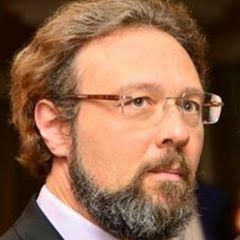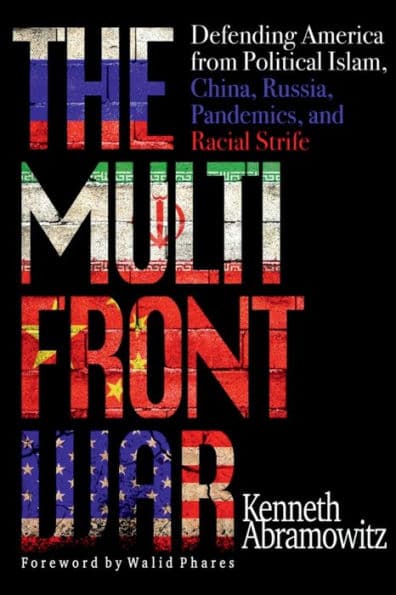By Dr. Dmitry Radyshevsky
The Religious Zionist camp in Israel is developing a new theological process: the growing desire to fulfill the universal mission of Israel, to get out of the national closet and make Israel a center and mediator in global decision making, and in upgrading and reloading Jewish “franchises”: Christianity and Islam.
The most active proponent of this new approach is writer and educator Pinchas Polonsky, author of the seminal book series “The Bible Dynamic”.
I interviewed Polonsky at his house in Jerusalem.
Q: – What must be done today to further the success of the Religious Zionism? Is it enough to strengthen what we are already doing (learning Torah, building settlements in Judea and Samaria, promoting national-religious values, and participating in the life of the State of Israel by developing it in accordance the ideals of the Jewish tradition)? Or is it time to look around and adjust the course to be taken by Religious Zionism itself, to designate new goals and objectives?
A: – In the past, the success of the Religious Zionism was based on the approach of Rav Abraham Isaac Kook, the first Chief Ashkenazi Rabbi of the State of Israel. This includes work on the two levels: practical policies for today and laying the groundwork for the future. Rav Kook implemented this approach by establishing Mercaz ha-Rav (Central Universal Yeshiva), that in the 1930s-1950s was already working on ideas ensuring the advancement of the Religious Zionism for the 1970s-1990s. However, the new perspective—new horizons of the Religious Zionism—has not been outlined yet. As a result, the Religious Zionist movement is losing its spiritual authority and leadership in Israeli society. So, to formulate such a perspective is an urgent and vital task.
Q: – The basis of the ideology of modern Religious Zionism is Rav Kook’s idea that the non-religious Zionism of Theodor Herzl is to be identified with the concept of Mashiach ben Yosef, or King Saul. Hence Rav Kook directed Religious Zionism on a practical level to support the Herzl’s secular Zionist movement, as it was the beginning of the messianic process. At the same time, according to Rav Kook, on a level of laying the groundwork for the future, the agenda of Religious Zionism should include building the foundation for the next phase of messianic process—Mashiach ben David, who would replace Mashiach ben Yosef and complete Geula, the redemption. This Mashiach ben David is identified with a settler movement. Do you think the situation has changed?
A: – This ideology worked in the era when Mashiach ben Yosef was just beginning its journey. Today, however, the situation has changed, so the direct application of a century-old fundamental premise runs into problems. Over the past century, Mashiach ben Yosef – secular Zionism—has successfully achieved its goals, established the modern State of Israel. Thus, in the messianic perspective, Mashiach ben Yosef, the secular Zionist movement, should be “dying” and be replaced by Mashiach ben David. However, there is still no sign of him—no political or social movement in today’s Israel could identify with him. Hence, the Religious Zionism gets stuck without a vision of its further goals and next steps.
Q: – You argue that in order to correct the ideology, we must look at another, much less well-known passage by Rav Kook, which, however, allows for a much broader perspective.
A: – Yes, that’s the passage from Rav Kook’s 1910 book Shmonah Kvatsim (3:1) which describes development of Judaism in modern times as the integration of the ideals of three groups—ideological camps within the Jewish people:
- Orthodox (Torah study and observance of the commandments).
- Secular nationalist Zionists (development of the Land, state-building, national security, and economy).
- Liberals-universalists (commitment to universal, yet Biblical, human values).
One hundred years ago Rav Kook believed that the Judaism of the future would be a synthesis of all three. So far, we have reached exactly halfway: the Orthodox and national Zionist ideals coexist in Religious Zionism, however the universalist ideals are not integrated yet.
Q: – In other words you call on religious Zionists to focus on the remaining half of the work: the integration of universalist ideals into Judaism, right?
A: – We should adapt the universal values in accordance with Jewish tradition and Rav Kook—without compromising the national and orthodox religious elements of Religious Zionism. We must proceed carefully, adopting only what we can define as “sparks of Divine Light.” However, in addition to understanding the present situation in practical terms — that is, “how to develop Judaism” — we should also frame it in terms of the messianic process. It is the realization of the messianic process and contribution to it that gives purpose and meaning to the Religious Zionism and infuses it with energy.
Q: – You argue that Mashiach ben Yosef has already completed its mission and is dying, and the influence of settlers, symbolized by Mashiach ben David, in political and social life of contemporary Israel is still limited, how could we answer the question—in which phase of messianic process do we live now?
A: – We could answer this question if we consider that the traditional model of messianic process — from Mashiach ben Yosef to Mashiach ben David — has two phases based on two archetypic dynasties of the ancient Jewish kingdom: one — from the Tribe of Joseph (King Saul), another—from the House of David (King Solomon). At the same time, the ancient Jewish kingdom went through three, not two phases of development, represented by the reigns of three, not two, Biblical monarchs: Saul, David, and Solomon. King Saul is seen as a messianic projection of Mashiach ben Yosef and King Solomon — as a messianic projection of Mashiach ben David. That is, it was Solomon, who followed Saul as Mashiach ben David, and not David, who followed Saul as just the king. So, David (whom we could call Mashiach ben Yehuda), was left out from the two-phase model of messianic process and should be restored to it.
Q: – Shall we propose a three-phase messianic process corresponding to the three, not two Biblical kings, each phase reflecting the main values and goals of respective generations of the Jewish people?
A: – Right. King Saul sought security and normalization of his people: “That we also may be like all the nations; and that our king may judge us, and go out before us, and fight our battles” (1 Samuel 8:20). Secular Zionism pursued the same goals, as noted by Rav Kook who identified Theodor Herzl with Mashiach ben Yosef. Under King David the life of the nation had an ongoing connection to the Divine authority and national-religious revival took priority. David finally restored the Ark of the Covenant to its proper place in Jerusalem, the national capital. King Solomon’s goal was to spread the Jewish faith in Torah’s One God among the nations. So, his reign became a messianic projection of the Mashiach ben David phase. However, it was impossible to go directly from Saul, Mashiach ben Yosef, to Solomon, Mashiach ben David, without the work done by David.
Q: – To use your terminology, the era of Saul, the secular Zionism, is coming to a successful end and we are grateful for the work it did. However, Solomon is not yet in sight, but David—in terms of the ongoing messianic process—is clearly present in modern Israel: it is the Religious Zionists, with their settlements in Judea and Samaria. Their goals are fully consistent with those of the Biblical David: a national-religious (not just national-secular) revival. What does it mean for the supporters of Israel in practical terms?
A:- This means that in terms of Rav Kook, on a practical level we must support David and this includes the activities we already do by supporting the settlements and participating in the life of the State of Israel; on a level of laying the groundwork for the future we must begin building a base for the coming of Solomon, Mashiach ben David. In the current phase of redemption, the phase of King David, we must take the following three steps to transform Judaism in order to bring the phase of King Solomon, the era of Mashiach ben David, closer:
• First, integrating universal human values, which do not contradict the Bible, into Religious Zionism, as in the vision of Rav Kook. Understanding history of all humanity, not only Jewish history as an ongoing dialogue between humans and God.
• Second, developing a deep dialogue between Judaism and Christianity, which would contribute to the development of Judaism itself. Development of the Noahide Movement, making Judaism accessible to non-Jews. Making Judaism a religion for anyone willing, without becoming a Jew.
• Third, developing the concept of universal significance of the Temple in Jerusalem and its future role as a beacon of Divine Light for all humanity and the point of connection between the nations of the world and God of Israel.
Religious Zionism—just as in the 1970s and 2000s—should take the lead in realizing these goals by establishing educational programs for all ages and levels, organizing conferences, creating working groups that will specifically promote public discussion of these topics in Israel.
Q: – It would not be easy for Religious Zionism to turn toward such goals. We are used to Religious Zionism emphasizing and reinforcing the national agenda, while overlooking and even ignoring the universal matters.
A: – Yes, we must acknowledge that the national agenda, including its ideological component, is being successfully realized, so we need not only to continue and complete our current practical work, but to look at it in the broader perspective and set our new goals for the future. Hence our principle: thank Saul, support David, pave the way for Solomon.
- We thank Saul, the secular Zionist movement, for creating our wonderful State of Israel. All shortcomings are temporary and will be overcome.
- We support David, the settlement movement, national-religious values, participation in all areas of the State of Israel and bringing it closer to the ideals of the Jewish tradition.
- We pave the way for Solomon by developing and promoting the orthodox modernization of Judaism and the integration into it of universal Bible-compatible human values.
Only in this way can we reach the next level of the orthodox modernization and make Religious Zionism the basis for the further development of the State of Israel and the Jewish people.
 Dr Dmitry Radyshevsky is a Moscow-born Harvard-educated Israeli-American theologian, political analyst and writer. Author of “Universal Zionism” and “The New Maccabees”. He’s the founder of Jerusalem Summit – a think-tank dedicated to uniting the free world around Jerusalem and developing a joint strategy against the twin dangers: “Man without God” of Post-Liberalism and “God without man” of totalitarian states’ Statism and Islamism.
Dr Dmitry Radyshevsky is a Moscow-born Harvard-educated Israeli-American theologian, political analyst and writer. Author of “Universal Zionism” and “The New Maccabees”. He’s the founder of Jerusalem Summit – a think-tank dedicated to uniting the free world around Jerusalem and developing a joint strategy against the twin dangers: “Man without God” of Post-Liberalism and “God without man” of totalitarian states’ Statism and Islamism.
Ken`s new book The Multifront War is now available in 190 countries via Amazon and also on BNs in the US. Buy it now!
.
.






